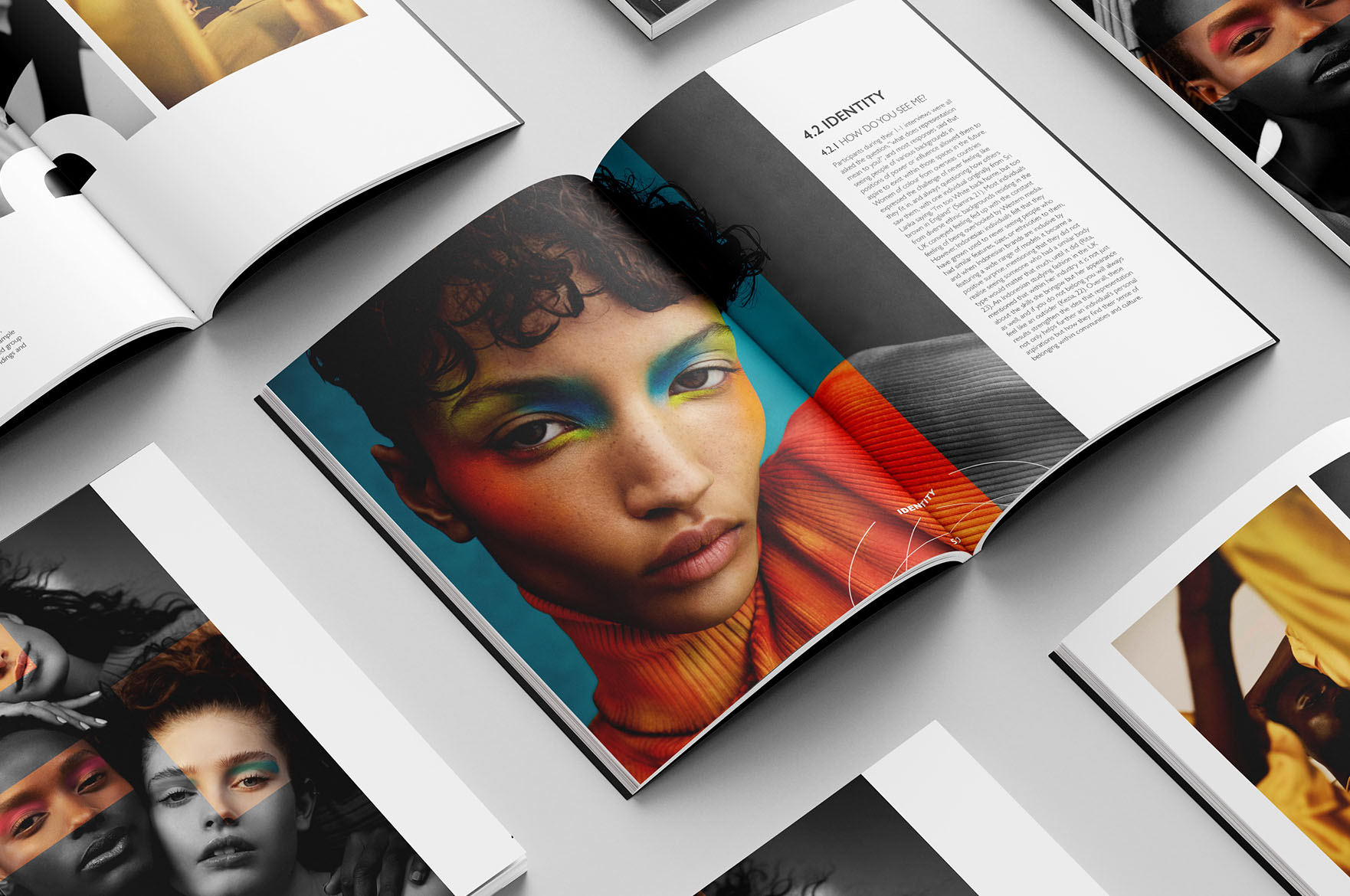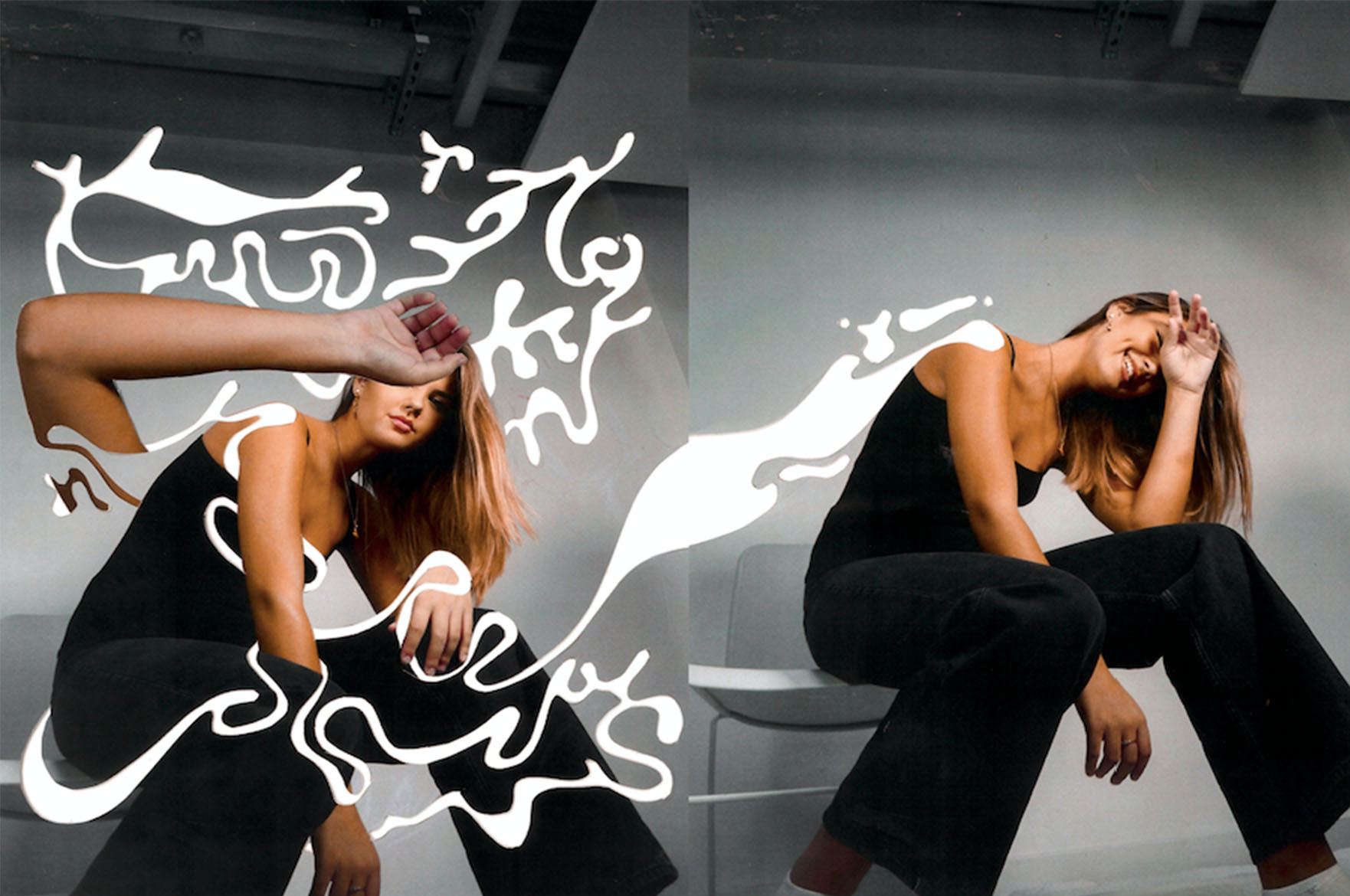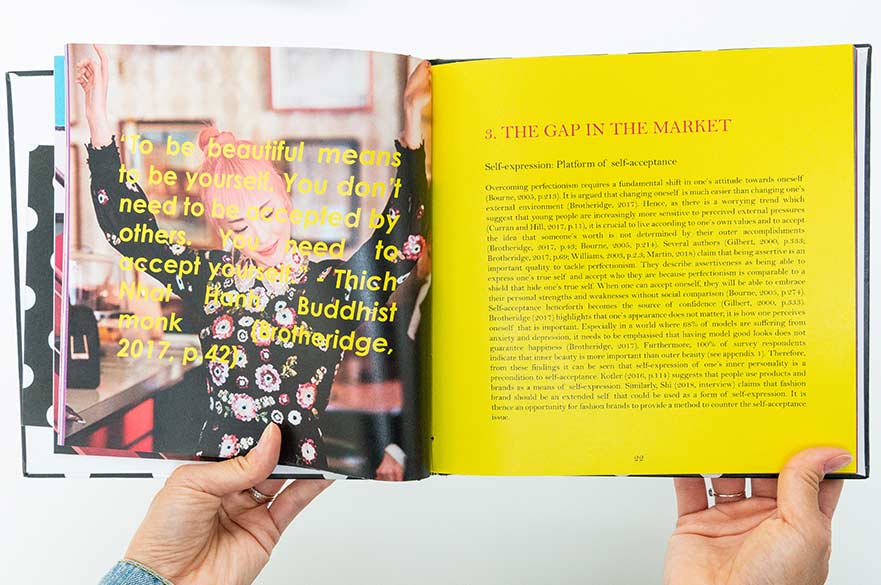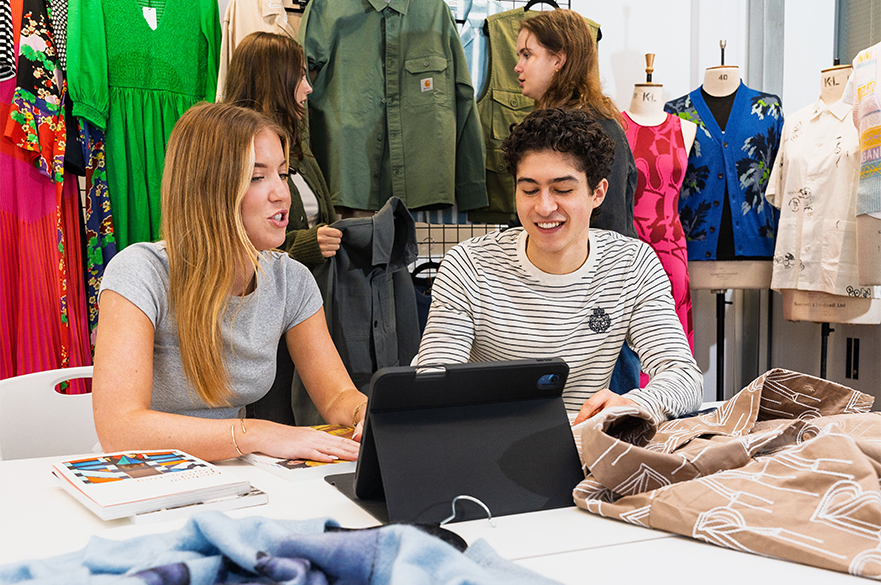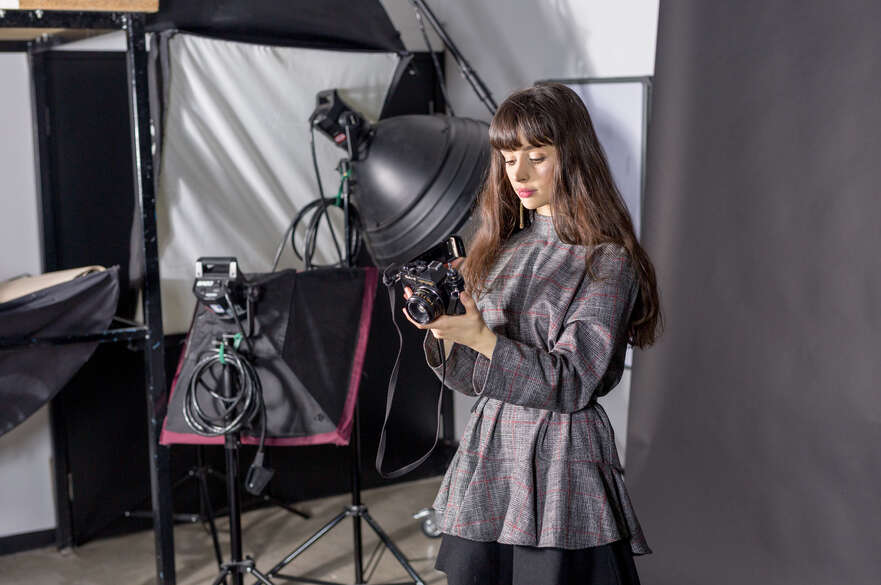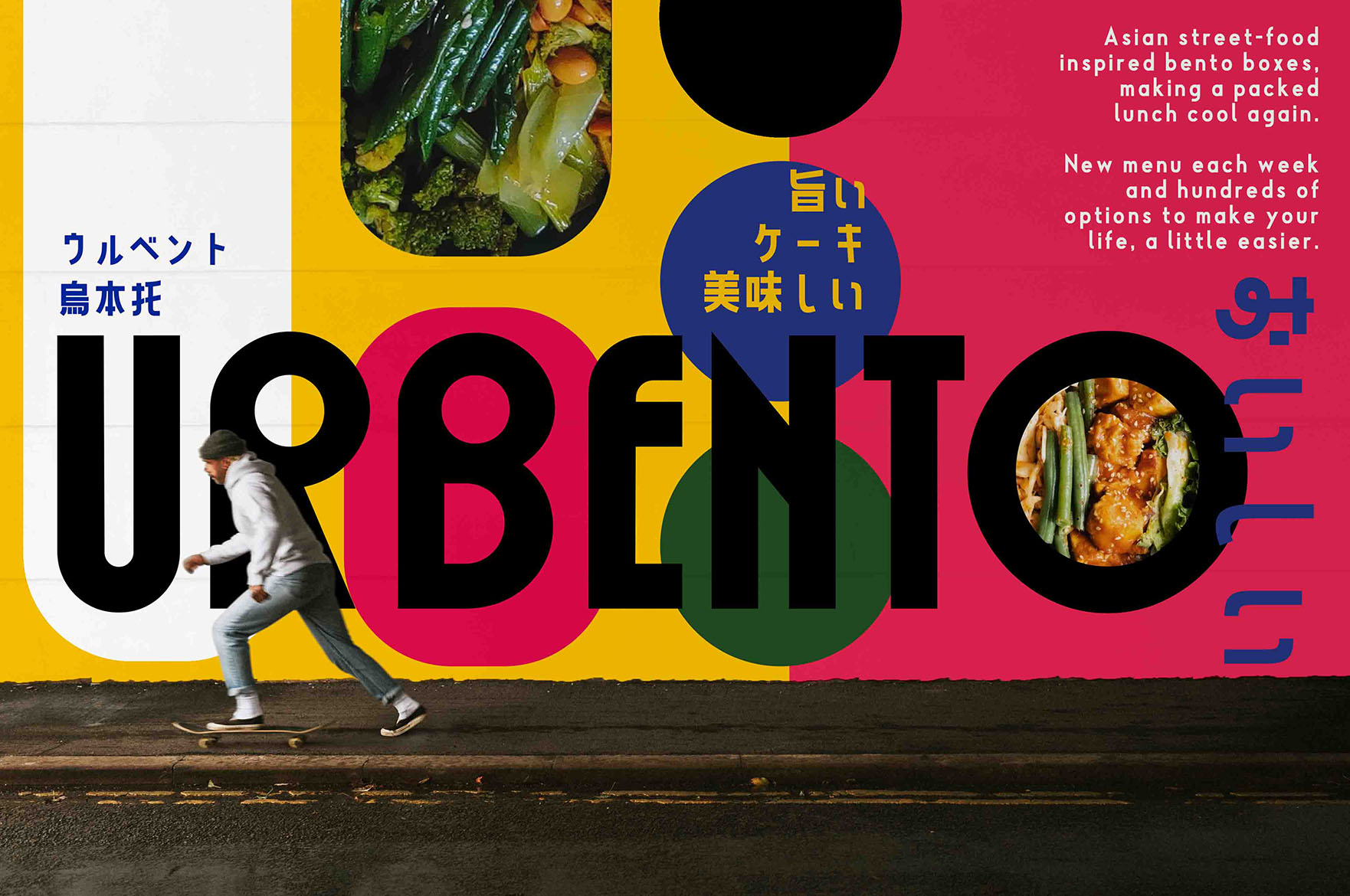This course is in Clearing
Offers from 80 tariff points
About this course
Some people fear the blank page. In creative direction, we live for it.
Our business is look and feel — the big picture and little details that tell attention-grabbing stories. From steampunk to K-pop to LGBTQ+, we’re experts in scenes and subcultures. We bring those worlds to life for the hottest names in fashion, gaming, music, TV, and film — managing everything from lighting, location, styling and soundtracks, to the thickness of a catwalk carpet.
AI might rule the ways we find content, but ‘the Big Idea’ behind that content still comes from you, your personality, and your specialist perspectives. From event spaces to fashion photoshoots, pages to stages, Paris in the 20s to New York in the 80s, you’ll learn how to put creative meat on the bones of an idea.
Fashion is big on strategy, but sometimes short on curation and artistry. By combining all three, our course plugs that gap. Weave whole worlds around your biggest cultural passions by researching, gathering, ideating, and finding your own signature style of art direction. It’s time to call yourself more than just ‘a creative’ — it’s time to step into creative direction.
15
What you’ll study
We’re a top 10 UK university for Art & Design (QS World University Rankings 2023). NTU was rated ‘Gold’ in the 2023 Teaching Excellence Framework, meaning you’re in great hands — from the support you receive in and outside the classroom, to the quality and relevance of what you’re being taught.
As well as sharpening your creative skills, you’ll be answering some big questions throughout this course. What might ‘fashion’ mean, beyond the traditional definition of clothes and jewellery? In a digital age, how have things changed since the first catwalk livestream, ten years ago? What’s the relationship between environment, culture, and trend? As directors, how can we work in creative harmony with AI — and how do we build desire for goods, services and lifestyles in a way that’s sustainable and ethically responsible?
On this course, you’ll:
- explore the art of communication — how we represent brands, and capture the imagination of consumers
- gain incredible hands-on skills in still- and moving-image-making, styling and art direction, graphic design and illustration, the dressing of physical and digital spaces, and much more
- develop your own signature visual style and specialisms
- experience our sector-leading take on the curatorial approach — researching themes and ideas throughout fashion history, gathering together different creative pieces, and generating fresh, thrilling, trend-worthy new concepts
- understand the full scale and range of creative direction roles in the industry
- see how fashion is evolving — from its changing place in culture and personal identity, to new collaborations, to how we’re overcoming traditional barriers to creative production
- explore the creative practice of industry legends, and the hottest new talents — big players like Virgil Abloh, Laila Gohar, Ben Ditto, Matt Lambert, SHOWstudio, Baron and Baron, Youth Mode, and M/M Paris
- choose from a huge range of specialist modules as your interests and ambitions take shape, covering everything from storyboarding to live event production
- learn how to use AI as a tool for developing, manipulating, and enhancing your work, while maintaining creative authority over your ideas
- master industry-standard design and editing software such as Photoshop, Premiere Pro, and Firefly.
There is an opportunity for students to undertake a placement year, and transfer to the Sandwich route, please see further details in the ‘Year Three’ section below.
Here’s a full breakdown of the modules you’ll be studying.
Experiment and Investigate: Introduction to Creative Direction and Curation
(40 credit points)
This module will introduce students to the concept of curation and direction through the development of wider knowledge of the global market place.
Students will be encouraged to develop skills around ideation through research and active participation in the learning environment.
Research and Evaluate: Fashion Environments, Cultures and Trends
(20 credit points)
This module will embed a cultural curiosity in students through the development of a habitual and focussed research process.
Students will develop their understanding of a curatorial approach through the consistent growth of knowledge through research practice and will develop their broader research skills by investigating their personal perspective as practitioners.
Ideate and Curate
(40 credit points)
Students will be able to curate research to generate ideas to form a series of creative propositions.
This will involve:
- Introduction of a curatorial approach to generate ideas.
- Developing an understanding of why the processes gleaned from 'Research & Evaluate' can come before or after the Idea alongside the development of dexterity in moving between ideation and research.
- Introduction of critique and opinion as part of the creative process.
- Development of confidence in idea generation without consequence of feasibility
The Industry and You
(20 credit points)
This module is focussed on allowing students the ability to begin their investigation into the possibilities the workplace has to offer in the world of fashion curation and direction.
Students will be encouraged to reflect on their own personal skills and passions and use this knowledge as part of their active investigation.
Curate and Create for Fashion
(40 credit points)
This module allows students to develop their knowledge and skill base within the world of curation in the broadest sense within the fashion industry.
Focussing on the importance of curation as the basis for the creative output both as a curated or directed solution, the module continues to encourage the students to focus on the research process as the underpinning a curatorial approach which is applied in the telling of compelling and innovative narratives in fashion.
Optional Module
(20 credit points)
You will also choose one optional 20-credit module from:
- Publishing: Experimental Formats
- Telling Stories
- Responding to the Visual World
- Creative Live Event Production
- Music Video
- Web3 & Creative Autonomy
- Fashion Styling
- Virtual Production
Direct and Product for Fashion
(40 credit points)
This module allows students to take their curatorial knowledge and apply their learning to a fashion direction environment.
Encouraging the students to work collaboratively to develop their co-creation skills but also fostering a practical and proactive approach to creative problem solving and innovation as a way to generate relevant and timely creative solutions.
Co Lab: Research, Exploration and Risk-taking
(20 credit points)
Through active participation with team-based problem solving, you will work together in mixed teams on a project where you will use your creative ideas to generate solutions to the challenge or brief. Your project will allow you to explore how creativity can make an impact in society, as you choose a theme of sustainability, social justice, enterprise and innovation or community. This collaborative learning experience will expose you to a range of new processes and approaches that will develop your creative thinking.
Optional Placement Year (Sandwich)*
We have an option for all of our students to undertake a placement year (Sandwich) and allow you to decide whether this is right for you once you have completed years 1 and 2 of your course. This time spent working in industry provides our students with crucial work experience, which is highly prized and much sought after by employers upon graduation. If you are successful in securing a placement you will have the chance to gain an additional Certificate or Diploma in Professional Practice, dependent on duration.
The additional placement year incurs a fee. For international students considering the transfer to the 4-yr SW route it’s important to seek advice from the International Student Support team and the Home Office regarding any potential visa implications and costs. For UK students, advice should also be sought regarding SLC eligibility, if applicable.
* If you choose to take the sandwich route option, you will still need to apply for this course with the full-time UCAS code: W233
Develop, Propose and Create: Negotiated Project
(60 credit points)
Students will develop a proposal for a final creative negotiated project at this stage.
Students are encouraged to develop proposals which foster their own creative passions with a focus on their own goals within the workplace. Negotiated with their tutor the students are then allowed to explore their creativity within the final projects produced.
Personal and Professional Direction
(20 credit points)
This module will allow students to draw on their understanding of the industry and their own personal aspirations to develop a portfolio which is focussed and work ready.
Real World Project
(40 credit points)
The professional practice module allows students to negotiate a real-world project or series of projects to enable them to achieve confidence and professional skills within their chosen sphere of work. Negotiated in advance the student can choose to work with one client or a number of clients over the intended period of study.
We regularly review and update our course content based on student and employer feedback, ensuring that all of our courses remain current and relevant. This may result in changes to module content or module availability in future years.
Creative Direction and Curation for Fashion at NTU
How you're taught
Our students don’t just choose this course — they choose the people delivering it. As well as exciting guest speakers from brands like FOTU Ldn and Perl Cosmetics, you’ll be taught by experts from the worlds of filmmaking, art direction, production, illustration, and more. We’ve got decades of industry experience between us, and a client list that ranges from Ocado and Alexander McQueen to Victoria Beckham and Lady Gaga.
You’ll be joining a genuine creative community — a melting pot of styles, tastes and perspectives, where collaboration is key. In creative direction, you’re never working alone; it’s about harnessing different people’s specialisms, crossing boundaries between disciplines, and creating without borders. From joint lectures to shared projects, we work fluidly, flexibly, and together.
On this course, you’ll learn through a mix of:
- lectures, where you’ll explore the key processes in creative direction and curation
- workshops, where you’ll learn and apply new art direction skills; supportive studio sessions, for a more community-focused approach to creating; friendly small-group tutorials; and regular one-to-ones
- Co Lab, where you’ll learn about the different roles and responsibilities in creative direction, partnering with students from other fields to work on real-world industry briefs and projects
- field trips to creative hubs across the UK, including 180 The Strand, and the London offices of Dazed
- the chance to study abroad with one of our international exchange partners
- attending industry competitions and exhibitions, like Paris Fashion Week
- an optional placement, to build up your network connections — choose from our six-week Professional Practice Certificate, or a longer Professional Practice Diploma in Year Three.
How you're assessed
On this course, we do it for real: you’ll be assessed on work that reflects the day-to-day reality of life in creative direction and curation. That means producing a great research portfolio, pitching against the clock, explaining and justifying your creative work, and then producing, negotiating and directing your ideas into life. Rather than old-fashioned exams and writing for writing’s sake, you’ll be measured against genuine industry challenges — ensuring you’re ready for that next big step into professional life.
Visit our iconic ‘We Are Creatives’ showcase to explore students’ work from across our suite of fashion courses.
Careers and employability
‘Creative Director’ and ‘Art Director’ are job titles — but even at a junior level, you’ll be involved in direction and curation from your first days in the industry. That’s true whether you’re working in-house at a big company, for an agency, or as a freelancer. It’s our job to give you the full professional picture of what creative direction and art direction look like in the real world — and to ensure you’ve developed a great portfolio of hands-on experience, building your professional reputation as a specialist in a particular scene or field.
We’ve focused on ‘curation’ because it’s cropping up increasingly in job titles — whether you’re booking models, developing an avant-garde menu for a Michelin-starred restaurant, or compiling the perfect between-sets playlist at a music festival. This is a future-focused course; we’ll be imagining jobs that don’t even exist yet, and seeing how the newest names and agencies are doing things that little bit differently. You’ll learn to ride trends and stay in step with an industry where tastes, production methods and insights are constantly evolving.
Along the way (and for up to three years after your course finishes), you’ll have the support of our friendly, award-winning Employability experts. Once you’ve graduated, your professional pathways could include:
- Creative Director
- Art Director / Fashion Art Director
- Designer
- Photographer
- Stylist
- Copywriter / Fashion author
- Videographer
- Event Producer
What our students are doing now
Fashion Management students host International Women's Day Event
To celebrate International Women’s Day, our Final Year Fashion Management students hosted a community event with inspirational industry experts.
Fashion students attend design brief workshop with iconic Nottingham designer
NTU alumnae becomes first UK winner of Cannes Young PR Lions competition
Campus and facilities
You’ll be based in the City Campus’ Barnes Wallis building, with everyday access to Adobe Suite-equipped design and editing suites, workshops, and all the professional tools of the trade — from recording software to video cameras and broadcasting equipment. For collaborative projects between courses and departments, you’ll have access to the new jewel in NTU’s crown, our cutting-edge Design & Digital Arts building. For a full breakdown of our brilliant facilities, just take the virtual tour.
Our City Campus has everything you’ll need to stay happy between lectures. As well as the Boots Library and its beautiful roof garden, there’s our superb Students’ Union building and two-storey, 100-station gym; a whole host of cafés, bars, restaurants and food outlets; performance and rehearsal spaces for musicians; and much, much more!
If that’s not enough, take just a few steps off campus and you’ll find yourself in the heart of Nottingham, one of Britain’s top 10 student cities. It’s big, small, old, and new — not only a place to study, but somewhere to properly call home. You’ll have some of the country’s hottest cultural landmarks right on your doorstep; from the nationally renowned Nottingham Contemporary Gallery, which hosts spotlight exhibitions for creative icons like Hamid Zenati, to Broadway, which was voted by Total Film magazine as one of the world’s top 100 independent cinemas. As an inspiration-hungry creative, there’s no better place to understand the heritage of the past, the possibilities of the present, and the promise of the future — all through the social, cultural and artistic lens of Britain’s original ‘rebel city’.
Entry requirements
This course is in Clearing
Looking for a place in Clearing? We are accepting application and would love to hear from you!
UK students
This course is in Clearing
Looking for a place in Clearing? We are accepting applications and would love to hear from you!
Clearing requirements
From 80 UCAS tariff points from up to 4 qualifications.
To discuss our entry requirements and see what we can offer you, call us now on +44 (0)115 848 6000. Alternatively, if you already have your qualifications, apply online via our Clearing Application form.
Preparing for results day? Beat the queue and sign up for NTU Priority for up-to-date information about all things Clearing. You’ll get an offer ahead of Clearing, subject to you achieving the required grades on results day.
To find out what qualifications have tariff points, please use our tariff calculator.
Additional requirements for UK students
There are no additional requirements for this course.
Contextual offers
If you don’t quite meet our entry requirements, we might be able to make you a lower offer based on a range of factors, including your background (such as where you live and the school or college you attended), your experiences and your individual circumstances (you may have been in care, for example). This is called a contextual offer, and we get data from UCAS to help make these decisions. We do this because we believe everyone with the potential to succeed at NTU should have the opportunity to do so, no matter what barriers you may face.
Meeting our entry requirements
Hundreds of qualifications in the UK have UCAS Tariff points attached to specific grades, including A-levels, BTECs, T Levels and many more. You can use your grades and points from up to four different qualifications to meet our criteria. Enter your predicted or achieved grades into our Tariff calculator to find out how many points your qualifications are worth.
Other qualifications and experience
NTU welcomes applications from students with non-standard qualifications and learning backgrounds, either for year one entry or for advanced standing beyond the start of a course into year 2 or beyond.
We consider study and/or credit achieved from a similar course at another institution (otherwise known as credit transfer), vocational and professional qualifications, and broader work or life experience.
Our Recognition of Prior Learning and Credit Transfer Policy outlines the process and options available for this route. If you wish to apply via Recognition of Prior Learning, please contact the central Admissions and Enquiries Team who will be able to support you through the process.
Getting in touch
If you need more help or information, get in touch through our enquiry form.
International students
This course is in Clearing
Looking for a place in Clearing? We are accepting applications and would love to hear from you!
Clearing requirements
From 80 UCAS tariff points from up to 4 qualifications.
To discuss our entry requirements and see what we can offer you, call us now on +44 (0)115 848 6000. Alternatively, if you already have your qualifications, apply online via our Clearing Application form.
Preparing for results day? Beat the queue and sign up for NTU Priority for up-to-date information about all things Clearing. You’ll get an offer ahead of Clearing, subject to you achieving the required grades on results day.
We accept equivalent qualifications from all over the world. Please check your international entry requirements by country.
English language requirements: See our English language requirements page for requirements for your subject and information on alternative tests and Pre-sessional English.
Additional requirements for international students
If you need help achieving the academic entry requirements, we offer a Foundation preparation course for this degree. The course is offered through our partner Nottingham Trent International College (NTIC) based on our City campus.
English language requirements
View our English language requirements for all courses, including alternative English language tests and country qualifications accepted by the University.
If you need help achieving the language requirements, we offer a Pre-Sessional English for Academic Purposes course on our City campus which is an intensive preparation course for academic study at NTU.
Other qualifications and experience
If you have the right level of qualifications, you may be able to start your Bachelors degree at NTU in year 2 or year 3. This is called ‘advanced standing’ entry and is decided on a case-by case basis after our assessment of your qualifications and experience.
You can view our Recognition of Prior Learning and Credit Transfer Policy which outlines the process and options available, such as recognising experiential learning and credit transfer.
Sign up for emails
Sign up to receive regular emails from the International Office. You'll hear about our news, scholarships and any upcoming events in your country with our expert regional teams.
Getting in touch
If you need advice about studying at NTU as an international student or how to apply, our international webpages are a great place to start. If you have any questions about your study options, your international qualifications, experience, grades or other results, please get in touch through our enquiry form. Our international teams are highly experienced in answering queries from students all over the world.
Policies
We strive to make our admissions procedures as fair and clear as possible. To find out more about how we make offers, visit our admissions policies page.



